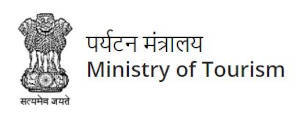Manguesh Temple
This temple had its origins in Kushasthali Cortalim, a village in Saxty (Salcette) which fell to the invading Portuguese in 1543. In the year 1560, when the Portuguese started conversions in Salcete taluka, the Saraswats of Vatsa Gotra moved the Manguesh Linga from the original site at the Kushasthali or Cortalim on the banks of river Aghanashini (Zuari) to its present location at Mangueshi in Priol village of Atrunja Taluka, which was then ruled by the Hindu kings of Sonde of Antruz Mahal (Ponda), to be more secure.Since the time of the shifting, the temple has been rebuilt and renovated twice during the reign of the Marathas and yet another time in the year 1890. The final renovation occurred in the year 1973 when a golden kalasha (holy vessel) was fitted atop the tallest dome of the temple.
The main temple is dedicated to Bhagavan Manguesh, an incarnation of Shiva. Bhagavan Manguesh is worshipped here as Shiva linga. According to the legend, Lord Shiva had manifested into a tiger to scare his wife Parvati. Paravati, who was frightened at the sight of the tiger, went in search of Lord Shiva and cried out, “Trahi Mam girisha!” (Oh Lord of Mountains, save me!). Upon hearing the words, Lord Shiva turned himself back to his normal form. The words “mam girisha” became associated with Lord Shiva and over time the words got abbreviated to Manguirisha or Manguesh.
The Sabha Griha is a spacious hall which accommodates over 500. The decor includes the chandeliers of the nineteenth century. The central part of the Sabha Griha leads to the Garbha Griha where the image of Manguesh is consecrated. Like most temples in Goa, Mangueshi Temple has a large number of pujas being performed daily. Every morning, Shodshopchar pujas, namely Abhisheka, Laghurudra and Maharudra, are performed. This is followed by Maha-Aarti at noon and Panchopchar pooja at night.Every Monday, the idol of Manguesh is taken out for a precession in the Palakhi accompanied by music before the evening Aarti.





